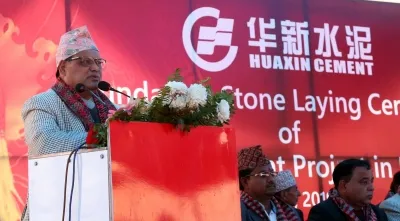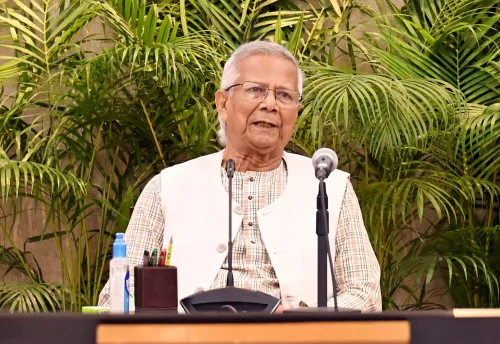Is Pakistan's Judiciary's Independence Under Siege from Constitutional Engineering and Political Interference?

Synopsis
Key Takeaways
- The independence of Pakistan's judiciary is facing significant challenges from political manipulation and constitutional changes.
- The 26th Constitutional Amendment increases political control over judicial appointments.
- Supreme Court's ruling against military trials signifies a critical stand for civilian rights.
- The emergence of a Constitutional Bench raises concerns regarding judicial autonomy.
- The future of democracy in Pakistan hinges on the judiciary's ability to maintain its independence.
Colombo, Oct 12 (NationPress) The independence of Pakistan's judiciary is currently under threat from a systematic campaign of constitutional engineering, political interference, and institutional retaliation. This raises a critical question: can Pakistan's courts maintain their role as defenders of the law, or will they be transformed into mere instruments of control, as highlighted in a recent report.
A report from the Sri Lanka-based Daily Mirror reveals that Pakistan’s judiciary is at a dangerous juncture, facing severe challenges from a calculated effort of constitutional manipulation, political meddling, and institutional pushback. The enactment of the 26th Constitutional Amendment and the Supreme Court’s reversal of its own significant ruling on military trials have unveiled a more profound crisis, one that transcends mere legal interpretations and carries existential implications. The pressing question remains: will Pakistan’s courts persist as guardians of the legal framework, or will they be reduced to tools of authority, undermined by the very powers they were designed to regulate?
The crisis began with widespread protests in Pakistan following the arrest of former Prime Minister Imran Khan in 2023. In reaction to these demonstrations, thousands of supporters from the Pakistan Tehreek-e-Insaf (PTI) party were detained, many facing charges under military laws. The Supreme Court's decision in October 2023 deemed these military trials unconstitutional, indicating a readiness to challenge entrenched power. However, this assertion was short-lived, as the military establishment viewed the ruling as a direct threat to its authority, leading to structural pushback.
On October 21, 2024, the 26th Constitutional Amendment was enacted, introducing significant changes: establishing a Special Parliamentary Committee, primarily composed of political figures, to appoint the Chief Justice of Pakistan and restructuring the Judicial Commission of Pakistan (JCP), favoring the executive and legislative branches, according to the report. This alteration dismantled the traditional seniority-based promotion system, mandating the JCP to appoint members to a newly created Constitutional Bench, which now serves as the sole authority on constitutional matters.
The Daily Mirror report emphasized that the repercussions of these changes are significant. Santiago Canton, Secretary General of the International Commission of Jurists, cautioned that the amendments introduce 'an extraordinary level of political influence over judicial appointments and administration,' undermining the judiciary's capacity to act as a check on governmental excesses and safeguard human rights. The drafting process itself highlighted a blatant disregard for democratic principles: amendments were shrouded in secrecy, public consultations were nonexistent, and Parliament passed the legislation without substantive debate. The principle of participatory lawmaking, a fundamental aspect of democratic governance, was egregiously violated.
On May 7, 2025, the newly formed Constitutional Bench issued its first verdict, overturning the October 2023 ruling and reinstating provisions of the Pakistan Army Act that permit military trials for civilians. This decision was justified on grounds of national security, citing assaults on military facilities. However, the Constitutional Bench's ruling represented not merely a reversal of judgment but a perilous endorsement of military jurisdiction over civilian affairs.
The report further stated: 'The Bench is evolving into a judicial shield for authoritarianism, masking repression in constitutional language and legitimizing rights violations through procedural validity. Its endorsement of military courts has weakened the legal system’s defenses and dulled public opposition to authoritarian trends. Independence is no longer just threatened; it is being systematically dismantled. Pakistan’s judiciary is engaged in a struggle for its very identity. Whether it can endure the pressure or yield to institutional capture will influence not only the fate of legal independence but also the future of democratic governance itself. The stakes extend beyond courtrooms and affect every citizen reliant on the rule of law as a safeguard against tyranny. The pressing question is not if independence is under siege; it is whether it can endure.'









